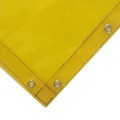The Engineering Council is the UK's regulatory body for the engineering profession. Several licensing bodies for professional engineering argue that only licensed professional engineers are legally allowed to use the title of engineer. There was also the possibility of legal licenses (direct government control) of engineers, such as other professional professionals such as doctors and architects, but the work of engineers was more limited to working with other engineering companies, providing a nominal level of professional self-sufficiency inherent regulation against misconduct. After at least five years of relevant work experience and the accumulation of at least 17 CPD (Continuing Professional Development) points, they can attempt the Engineering Practice Exam (EPE).
However, in all cases, engineers must ethically limit their practice to their area of competence, which is usually a small part of a discipline. In Canada, the designation of professional engineer can only be used by licensed engineers and engineering practice is protected by law and strictly enforced in all provinces. Learn how the Engineering Council works with professional engineering institutions and other key engineering organizations. Despite the different approach, engineers in industry and private practice face similar ethical problems and reach similar conclusions.
Commitment to part-time consulting) and encourage participation in other CPD activities that promote the engineering profession (e. To improve the quality of engineering services, engineers with professional engineer (PE) status must also participate in CPD activities in order to retain their PE license. Those who pass the EPE receive the prestigious title of professional engineer (PE) in their specialized work discipline. Registration with the Engineering Council gives you national recognition of your engineering skills and status and designating letters after your name.
The 1922 Act was open, which means that membership in the association was not compulsory for practicing engineers. However, some engineers in other fields obtain licenses to be able to serve as professional witnesses in court, before government committees or simply for prestige, although they may never sign or stamp design documents. Unlicensed engineers usually work as employees of a company or as professors in engineering colleges, where they are governed by the industrial exemption clause. These areas include much of mechanical, aerospace and chemical engineering and may be specifically exempt from regulation under an industrial exemption.
These titles are protected by law and are subject to strict requirements defined by the UK Engineering Council. So what are the regulations for engineers in the UK? The answer is that it depends on what type of engineer you are. For those who wish to become a licensed professional engineer, they must have at least five years of relevant work experience and accumulate at least 17 CPD points before attempting the Engineering Practice Exam (EPE). Those who pass this exam will receive the prestigious title of Professional Engineer (PE).
Additionally, those with PE status must participate in CPD activities to retain their license. For those who do not wish to become a licensed professional engineer, they may still use their title but must ethically limit their practice to their area of competence. It is important for engineers in the UK to understand what regulations apply to them depending on their profession. The Engineering Council is responsible for regulating professional engineers and ensuring that they adhere to strict requirements set forth by them.
It is also essential for engineers to understand their ethical responsibilities when practicing their profession. The regulations for engineers vary depending on whether they wish to become a licensed professional engineer or not. Those who wish to become a licensed professional engineer must have at least five years of relevant work experience and accumulate at least 17 CPD points before attempting the Engineering Practice Exam (EPE). Additionally, those with PE status must participate in CPD activities to retain their license.










